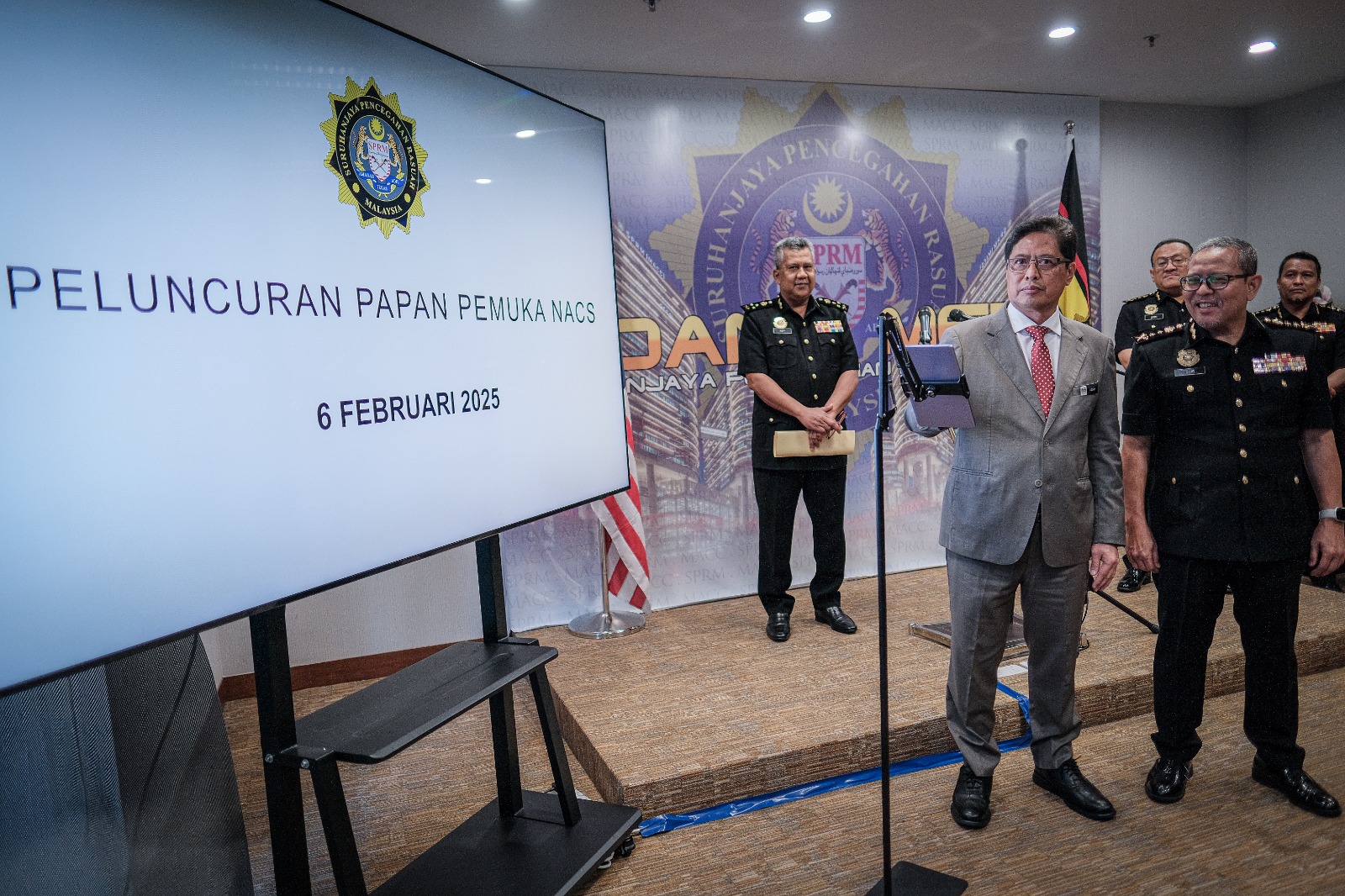KUALA LUMPUR, Feb 5 — Malaysia now has a single agency in charge of border control, known as the Malaysian Border Control and Protection Agency (AKPS). The agency was established this month to oversee all international borders.
AKPS currently manages 22 border checkpoints and will take control of all 114 entry points by 2026.
Why was AKPS formed?
Previously, more than 20 different agencies or departments handled border security.
Now, AKPS takes over these responsibilities, combining their functions to improve coordination and reduce duplication.
The Cabinet approved the agency’s formation in April last year, and it was officially established in October through the Border Control and Protection Agency Act 2024.
Deputy Prime Minister II Datuk Seri Fadillah Yusof said AKPS was created to unify border enforcement, make trade and travel smoother, improve security, and enhance service delivery.
The agency is led by Datuk Seri Hazani Ghazali as its first director-general and has over 6,000 employees.
Hazani was formerly a senior police officer, among others responsible for setting up the Eastern Sabah Security Command (ESSCom) after the Lahad Datu incursion in 2013.
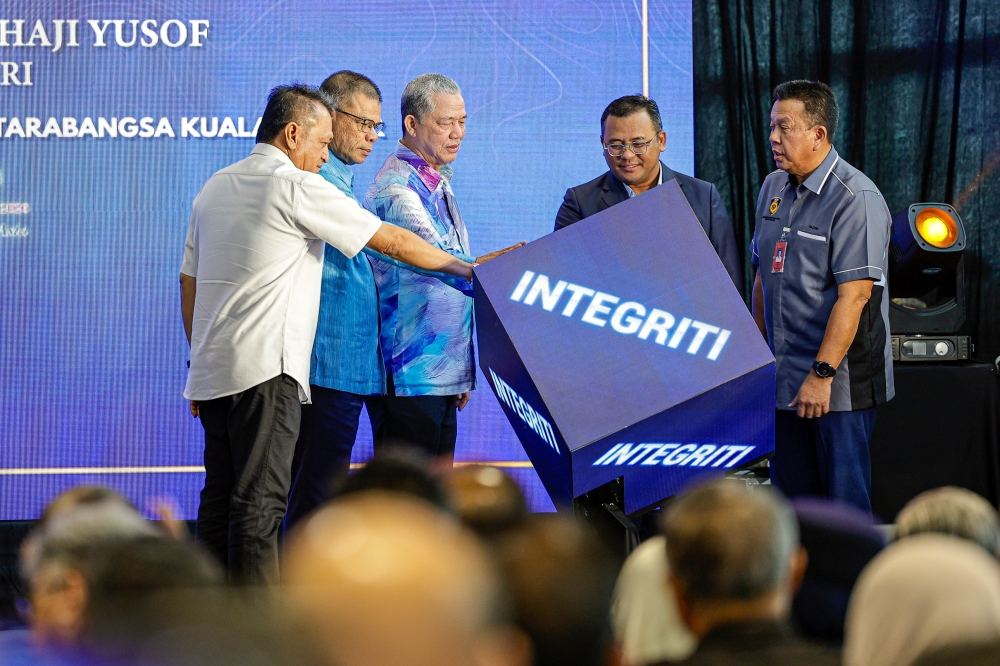
Malaysian Border Control and Protection Agency (AKPS) director-general Datuk Seri Hazani Ghazali (right) seen during the launch of the agency at Kuala Lumpur International Airport. — Bernama pic
What are AKPS’ responsibilities?
Under Section 6 of the abovementioned Act, AKPS is responsible for inspecting and controlling:
- People entering or leaving Malaysia.
- Goods transported in and out of designated areas.
- Vehicles crossing Malaysia’s borders.
- Food, drugs, cosmetics, and other health-related items brought into or out of the country.
- Wildlife and related products entering or leaving Malaysia.
- Plants, animals, carcasses, fish, agricultural products, soil, and microorganisms crossing the border, with quarantine measures if needed.
AKPS also prevents and investigates border-related offences and issues relevant documents.
The agency manages border checkpoints, patrols border areas, and collects intelligence to strengthen security.
In an interview on February 1, Hazani said AKPS will focus first on securing Malaysia’s porous land borders before fully taking over border security operations by 2028.
By 2026, AKPS aims to increase its workforce to 16,000 staff as it assumes full control of all border checkpoints.
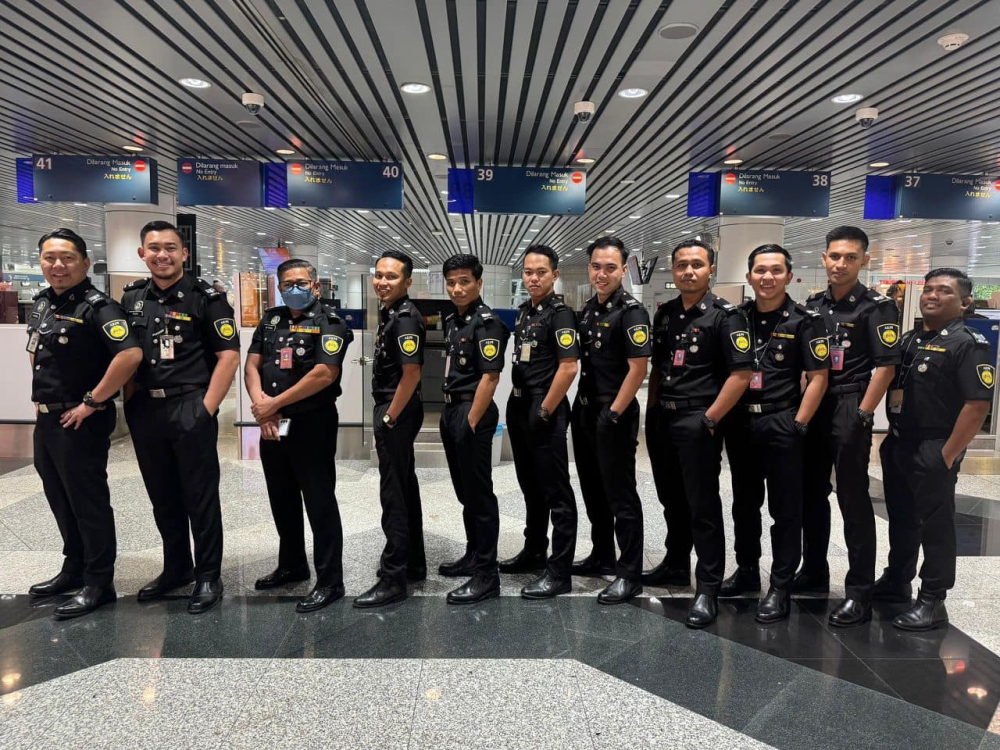
AKPS officers stationed at the Immigration Department counters in in Kuala Lumpur International Airport (KLIA) on February 1. — Picture via Facebook/AKPS KLIA
How was AKPS set up?
AKPS was created by absorbing personnel from existing enforcement agencies, without adding new positions.
This included 1,060 staff from the Royal Malaysian Customs Department, Home Minister Datuk Seri Saifuddin Nasution Ismail told Bernama on Sunday.
Other agencies involved in this integration include the police, Immigration Department, Wildlife and National Parks Department, Health Ministry, Road Transport Department, and the Malaysian Quarantine and Inspection Services (Maqis).
Although each agency still has its own counters at checkpoints, their officers are now officially under AKPS. They currently wear an AKPS armband while waiting for their new uniforms.
However, existing enforcement agencies will continue their regular duties. For example, Customs will still handle taxation, while AKPS will focus on inspecting and controlling goods crossing the border.
Similarly, Saifuddin said AKPS is not replacing agencies like the Malaysian Maritime Enforcement Agency (MMEA). Instead, AKPS will oversee border checkpoints while MMEA secures Malaysia’s maritime areas from illegal fishing and smuggling.
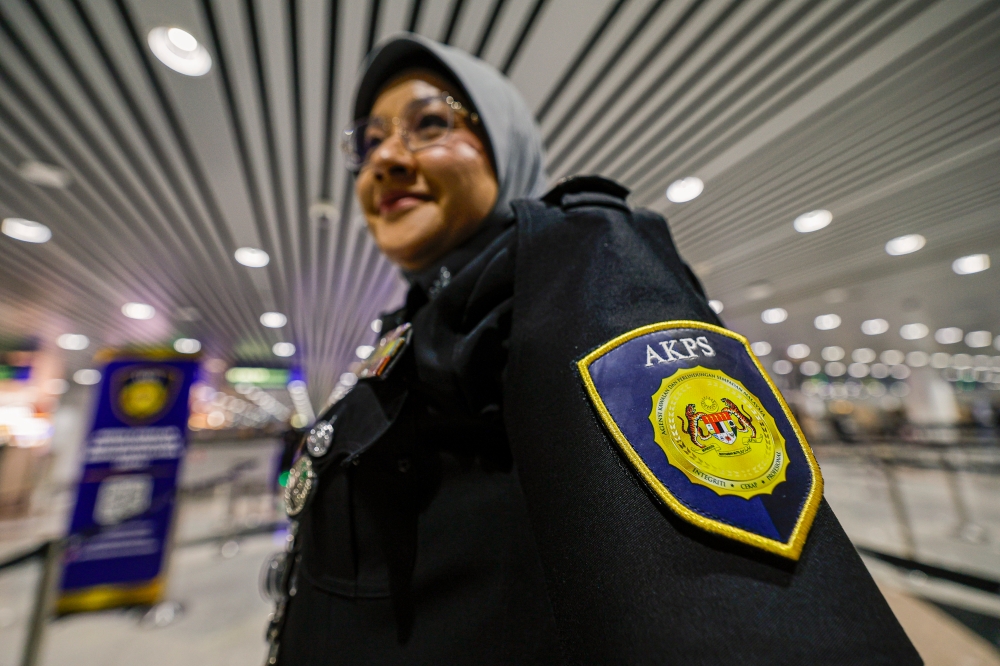
Malaysian Border Control and Protection Agency (AKPS) officers could be recognised via their armband, and will transition into their own uniforms soon. — Bernama pic
Where is AKPS operating?
AKPS has started operations at 22 checkpoints across Malaysia, including:
- Kedah: Bukit Kayu Hitam
- Penang: Penang International Airport, North Butterworth Container Terminal
- Selangor: Kuala Lumpur International Airport (Terminals 1 and 2), KLIA Cargo
- Johor: Sultan Iskandar Building, Sultan Abu Bakar Complex, Johor Port, Tanjung Pelepas Port
- Sabah and Sarawak: Kota Kinabalu International Airport, Sandakan Airport, Tawau Airport, Kuching International Airport, Sibu Airport, Bintulu Port, Senari Port
For now, AKPS is prioritising major air entry points, including KLIA, Penang International Airport, and Kota Kinabalu International Airport.
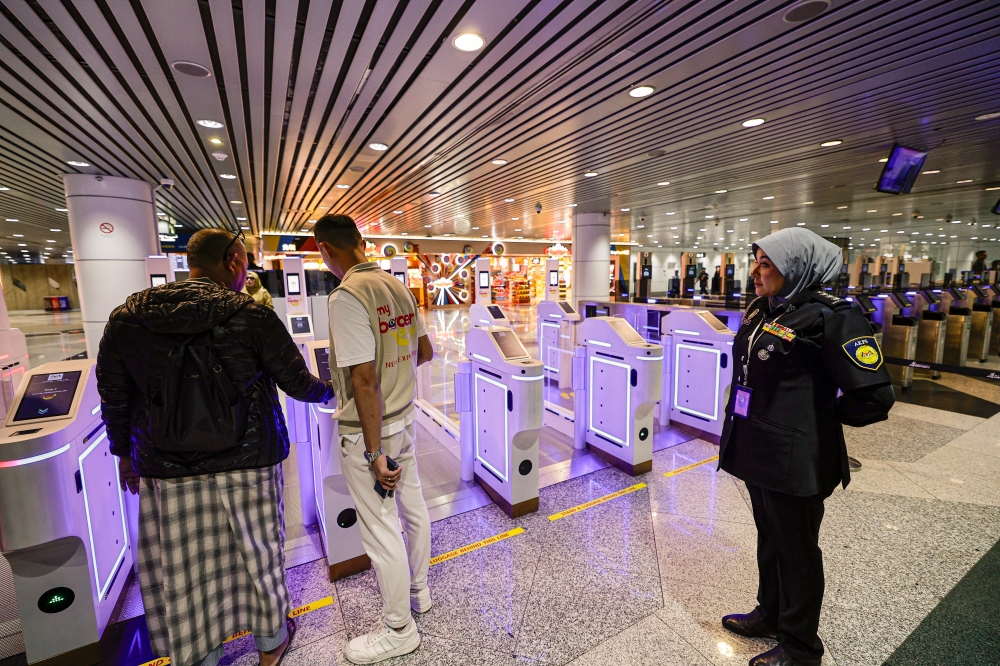
The Malaysian Border Control and Protection Agency (AKPS) will take over the roles of around 20 different agencies and departments formerly in charge of border control. — Bernama pic
What does this mean for travellers?
For now, travellers will not notice major changes, except for officers wearing AKPS armbands at border checkpoints.
AKPS has assured that standard operating procedures will remain the same while it works on streamlining processes and reducing unnecessary steps.
In the future, AKPS plans to introduce advanced technology, including automated passport control systems and e-gates, to speed up immigration clearance.
These upgrades will improve efficiency, reduce waiting times, and enhance the travel experience, it said.






